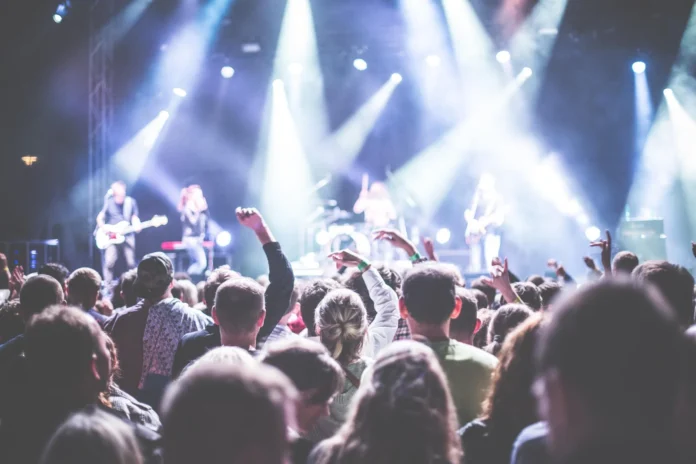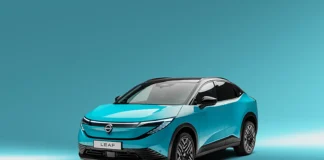UK entertainment brands are rapidly expanding into live formats that blend culture, hospitality, and retail, transforming pop culture into ticketed experiences that permeate social media feeds and city economies.
Avatar concerts, immersive screenings, upgraded casinos, and IP-led attractions have moved from side bets to core strategy. Company filings and industry reports show demand for experiences that justify a night out, while executives frame the competition as a fight for attention beyond the living room.
Immersive Flagships
ABBA Voyage, the digital concert staged in a purpose-built arena in London, has become a bellwether for high-spec shows. Company accounts reported approximately 1.1 million visitors and roughly $ 129 million in revenue for 2023. Trade updates this autumn indicated that production continued to sell strongly into its third year. Producers Svana Gisla and Ludvig Andersson have presented the project as an immersive experience, pairing a live band with motion-captured performers inside the Queen Elizabeth Olympic Park venue.
Secret Cinema, the London-born outfit that turns films and TV into ticketed worlds, expanded under TodayTix Group after a 2022 acquisition that its chief executive, Brian Fenty, called “a game changer for culture seekers.” In October 2025, Ari Emanuel’s new events company, Mari, acquired TodayTix, keeping Secret Cinema inside a growing portfolio that also spans art fairs and sports properties. The sale suggests deeper capital backing for permanent immersive sites and touring formats.
Casinos Recast the Night
UK casino operators have expanded their offerings from gaming floors to mixed-format nights, anchored by sports, food, and live entertainment. Rank Group, which operates Grosvenor Casinos and Mecca, reported a sharp rise in profits for the year to June 2025, attributing it to venue investment and product refreshes. The company stated that “transformative land-based casino reforms” passed into law in July would enable more machines across fifty Grosvenor venues and pave the way for introducing sports betting at dozens of sites, aligning their broader strategy with the growing expectations set by trusted online casino sites.
The regulatory backdrop has shifted. Government and regulatory documents outline the timetable and scope of changes that took effect from July 2025, including updates to machine allocations and table rules. Operators describe the policy as supportive of a broader hospitality push aimed at keeping mixed groups in the building on major football or boxing nights.
Theme Parks and Branded Attractions
Merlin Entertainments, the owner of Alton Towers, Thorpe Park, and UK Legoland sites, continued to build around familiar IP through 2024 and 2025, while sharpening its positioning against at-home entertainment.
“Our biggest competition is screens at home,” chief executive Fiona Eastwood said in October, outlining a focus on memorable guest experiences and operational performance. The company has promoted seasonal events and co-branded rides while expanding its international presence.
Live Music and the Arena Effect
The live music recovery has accelerated the shift toward experiences that transcend cities. Newly released data show that UK consumer spend on live music rose 9.5% year-on-year in 2024 to approximately £6.68 billion, driven by stadium tours and the opening of new arenas. London retained the largest share, while Manchester’s Co op Live added scale in the north west. Around the biggest tours, brands concentrated activations in concourses and city centres, from merchandise takeovers to pre-show fan zones.
Gains have been uneven. Campaigners continue to report closures among grassroots venues, citing rising costs as a threat to the foundation of the ecosystem. The split leaves the largest shows capturing most sponsorship and tourism uplift, while smaller rooms rely on targeted relief measures and levy pilots.
Why brands are moving…
Marketers cite fragmentation as the driver. Live Nation told investors that global fan demand for events remained “stronger than ever,” aligning with agency research that tracks rising experiential budgets across 2024 and into early 2025. The playbook depends on fast-turn urban spaces for pop-ups, ticketing tools that reduce friction, and social video that multiplies the reach of a single night.
Brand work around major tours has also become more measurable, according to agencies, which report higher conversions from on-site QR offers linking merchandise to future ticket holds. Marketers say the data enables spending to be attributed to specific shows, rather than relying on broad awareness alone.
Future outlook
Shorter runs, faster build-outs and more collaborations are likely as budgets tighten. In casinos, operators expect incremental gains from the land-based reforms as hospitality and sports are integrated into the core offering. For attractions and music, the test is whether demand stays resilient as household budgets remain stretched, or whether formats shift toward modular, touring shows that reduce capital risk.
Analysts also point to staffing and planning constraints. The speed that makes pop-up culture effective can strain local licensing calendars and supply chains, shaping what survives beyond a single season.
Final Thoughts
Across music, film, gaming and hospitality, the UK experience economy is converging on one idea. Live time is sold as a memory and a shareable moment, underwritten by familiar IP and measured by the speed at which a story travels from venue to phone to the next booking.












